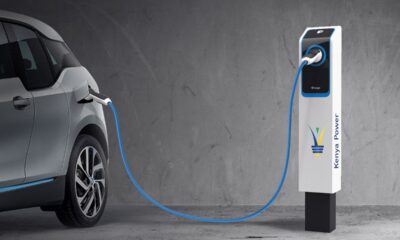Tech
Dawn of Starlink: Kenya’s Internet Revolution
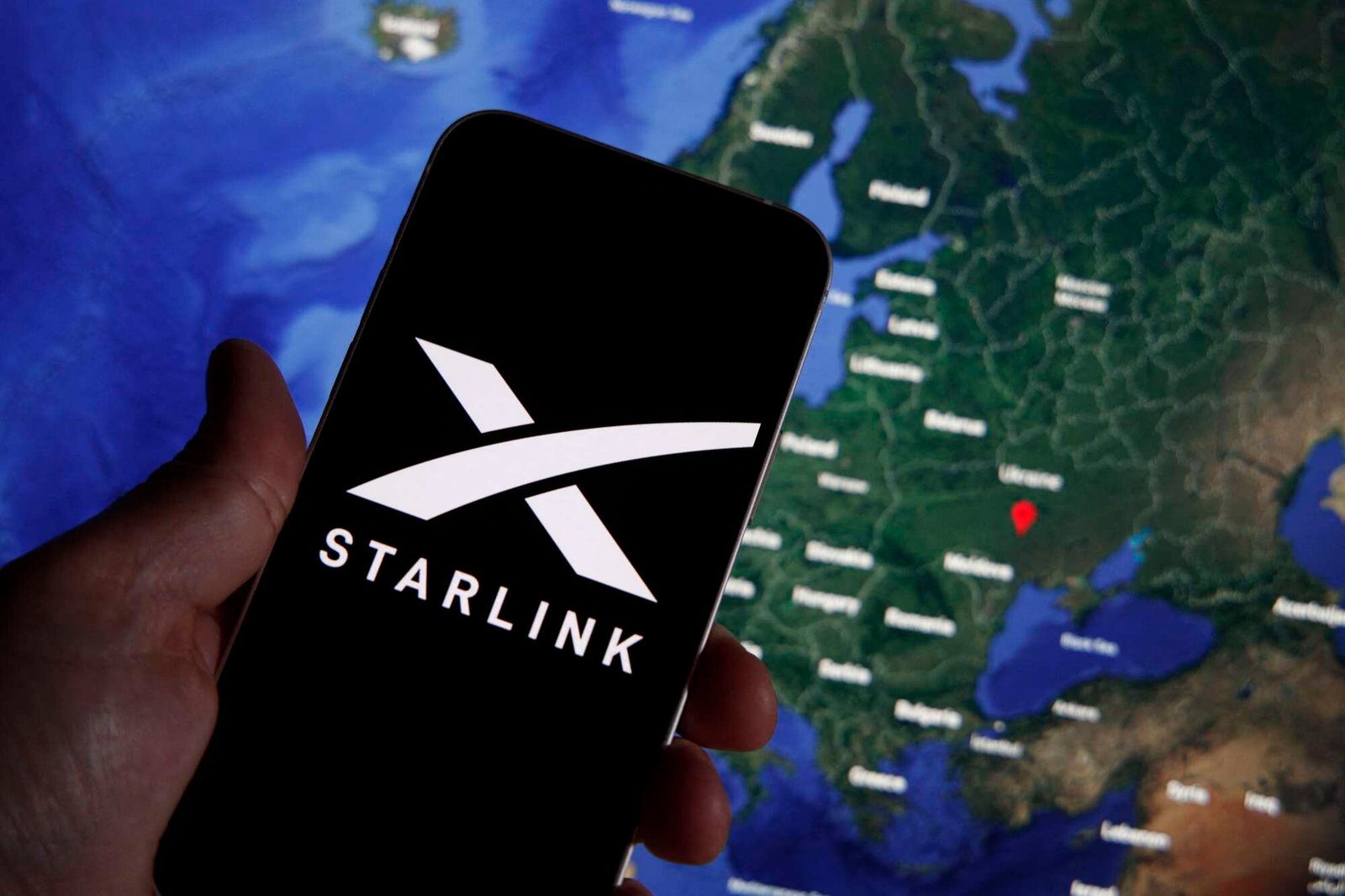
The Kenyan internet market is poised to experience a major revolution with the arrival of Starlink, spearheaded by Tesla CEO Elon Musk. The company recently announced its plans to offer internet connectivity to several key towns in the country. Elon took to Twitter to share the exciting news shortly after the official announcement by Starlink Company.
This development is expected to revolutionize the local internet landscape by introducing advanced and cutting-edge technology. Starlink aims to challenge the status quo of satellite internet, promising speeds of over 150 Mbps to any location on Earth as long as its satellite dish has an unobstructed view of the sky.
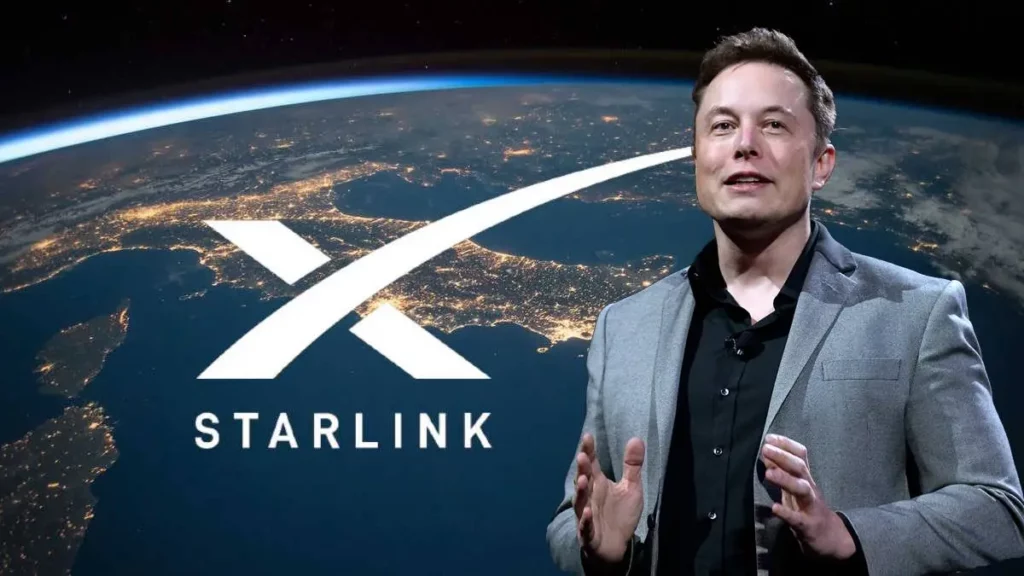

With this groundbreaking venture, Elon Musk continues to cement his reputation as an innovative entrepreneur who fearlessly reshapes industries. Starlink’s expansion into Kenya marks a significant milestone in the journey toward universal connectivity and digital empowerment. The country’s tech-savvy population can now look forward to embracing the dawn of a new era in internet access, thanks to Starlink’s game-changing services.
The arrival of Starlink has the potential to disrupt the dominance of established internet service providers like Safaricom and Zuku, as the competition heats up in the race to provide faster and more reliable internet access.
Tech
Electric Cars in Kenya: A dream too big or is the future here?
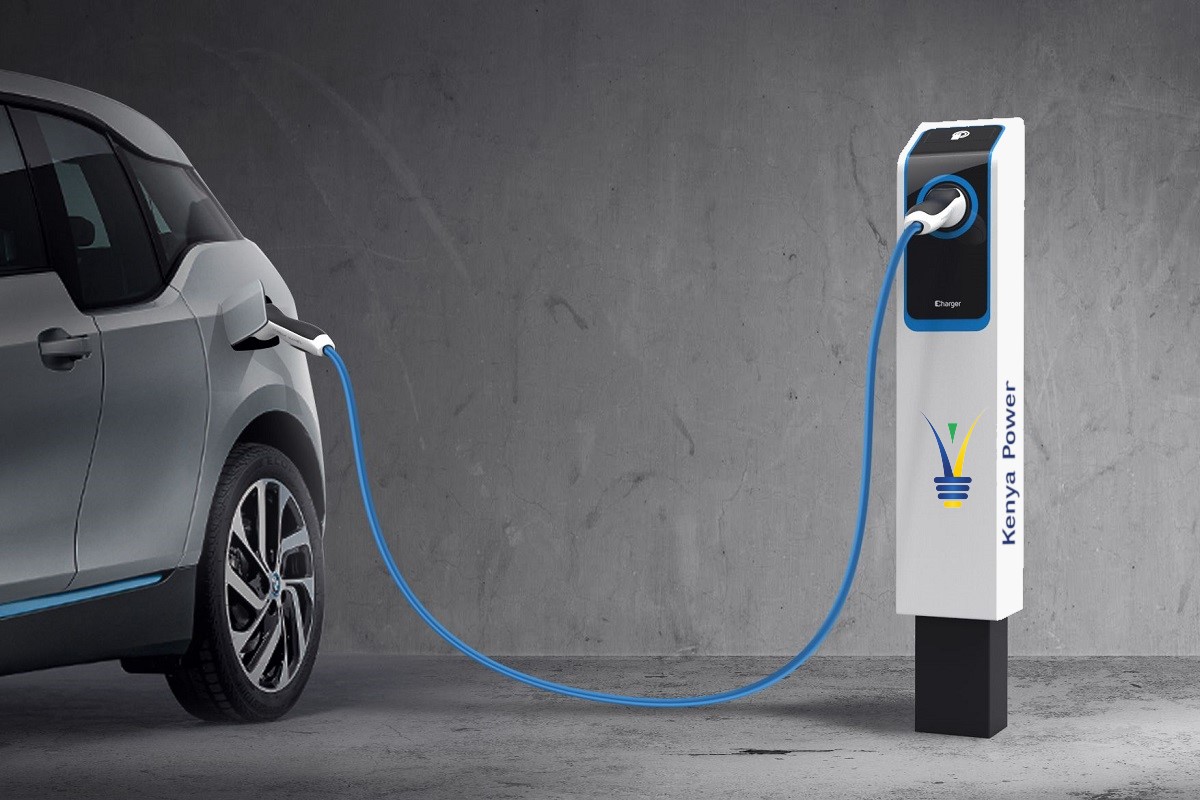

The global transport sector is undergoing a transformation. With world leaders and stakeholders advocating for sustainability across all sectors, the transport industry, both regional and international, is embracing this shift.
While the uptake of clean transportation, such as electric and hybrid vehicles, is still in its early stages worldwide, particularly in Africa and notably in Kenya, the realization that change is inevitable is gradually becoming apparent to millions. With the Kenya Bus Service unveiling its first electric bus, the question is, is the future really here?
The Case for Electric Vehicles
The appeal of electric vehicles (EVs) is clear, offering numerous advantages for Kenya’s environmental and economic landscape. EVs emit no tailpipe pollutants, greatly contributing to the reduction of air pollution in urban areas. Air quality is a critical issue in Kenya, especially in Nairobi which reported PM2.5 air pollution has caused an estimated death of 500 lives since January 1, 2021. It has cost the city’s economy around US$78 million so far this year. Electric vehicles could significantly cut down on dangerous emissions such as nitrogen oxides and particulate matter, potentially improving public health and decreasing medical costs from air pollution-related diseases.
Electric vehicles also present an opportunity for Kenya to reduce its reliance on imported oil. The transport sector is a significant oil consumer, and volatile global oil prices can burden the national economy, you’ve seen how unstable fuel prices have been in the last couple of months. Transitioning to EVs allows Kenya to leverage its plentiful renewable resources, like solar and wind, for vehicle power generation, enhancing energy security and autonomy.
In terms of cost, electric vehicles may prove more economical over time. Although the initial investment for an EV might surpass that of a conventional petrol or diesel car, the operational expenses for EVs are considerably lower. They require less upkeep than internal combustion engines, and electricity typically costs less than petrol. Moreover, the Kenyan government’s interest in fostering electric mobility, through measures such as the Electric Vehicle Taskforce and potential tax benefits, indicates a strong commitment to facilitating the uptake of electric transportation.


The Roadblocks Ahead
Despite a positive outlook, several obstacles hinder the widespread adoption of electric vehicles (EVs) in Kenya. The primary challenge is the high initial cost. Although the long-term benefits of reduced fuel and maintenance costs are appealing, the upfront investment is a significant hurdle for many.
Another critical issue is infrastructure. A comprehensive charging network is vital for EV owners, yet Kenya is in the nascent stages of building such infrastructure. Additionally, range anxiety, the worry of depleting battery power, is a concern, particularly for those travelling beyond urban centres.
Moreover, the Kenyan electricity grid is already under pressure. The integration of a substantial number of electric vehicles may present further challenges to the grid’s capacity. The Kenya Power and Lighting Company (KPLC) continues to face challenges in meeting the power supply demands of Kenyans, with concerns that it may lack the capacity to support millions of electric cars. However, change is on the horizon, albeit gradually.
Balancing Dream and Reality
Bridging the gap between ambition and reality requires a comprehensive strategy. Government incentives like tax breaks and subsidies could make electric vehicles (EVs) more accessible. Critical to fostering consumer trust is the investment in charging infrastructure. Moreover, local EV assembly could lower expenses and generate employment opportunities.
Public awareness initiatives are also key in informing citizens about electric mobility’s advantages. Furthering research and development in battery technology is essential to address range concerns and decrease costs.
The journey towards broad EV adoption in Kenya is challenging, yet the potential benefits are significant. It presents a chance to purify our urban environments, diminish our carbon footprint, and forge a more sustainable future. The real question is not if electric cars are feasible, but rather how swiftly we can actualize this vision.
What are your thoughts on electric cars in Kenya? Are you optimistic about their future? Share your opinions in the comments below.
Tech
Top 10 Browsers For Different Users in 2024


As we become more connected to the internet day by day, web browsers remain a crucial gateway to the internet. As our needs and expectations grow, so do the features and functionalities of these browsers. But are using the right one? What does the right one mean?
Here’s a look at the top 10 web browsers in 2024 for mobile and PC, evaluated based on performance, security, and user experience.
1. Google Chrome


Google Chrome continues to dominate the browser market with its sleek design, fast performance, and seamless integration with Google services.
Pros:
- Speed: Known for its rapid load times and efficient performance.
- Extensions: Extensive library of extensions and plugins.
- Sync: Easy synchronization across devices with a Google account.
Cons:
- Resource Intensive: Can consume significant memory and CPU resources.
- Privacy Concerns: Google’s data collection practices can be a concern for privacy-conscious users.
2. Mozilla Firefox


Mozilla Firefox is a strong contender, offering robust privacy features and extensive customization options. It blocks third-party cookies and executes quickly by fetching the data you want from the websites.
Pros:
- Privacy: Strong emphasis on user privacy with features like Enhanced Tracking Protection.
- Customization: Highly customizable with themes and add-ons.
- Performance: Improved speed and resource management with the Quantum engine.
Cons:
- Extensions: Some extensions may not be as well-developed as those for Chrome.
- Compatibility: Occasionally faces compatibility issues with certain websites
3. Microsoft Edge


Microsoft Edge, now based on the Chromium engine, offers a balanced mix of performance, security, and features. Edge uses a lot of security tools, like SmartScreen anti-phishing tools. This company uses phishing detection technology to detect phishing sites.
Pros:
- Speed: Fast and efficient, thanks to the Chromium engine.
- Features: Integrated with Windows 10 and 11, offering features like Collections and vertical tabs.
- Security: Regular updates and strong security features.
Cons:
- Extensions: The extension library is smaller compared to Chrome.
- Privacy: Microsoft’s data collection practices can be concerning.
4. Arc Browser


Arc is a free web browser that’s currently available for Windows 11, macOS, and iPhone. A Windows 10 version and an Android app are on the way. It was developed by The Browser Company, a startup located in New York.
Pros
- Fast Lightweight architecture for fast load times and smooth performance.
- Split screen mode Can be productive on a single monitor.
- Well-designed Clean interface and is customizable.
- Fluid Feels integrated with the operating system.
- Keyboard shortcuts Over 70 keyboard shortcuts can be set.
- Spaces Create different spaces to organize related tabs and theme each space.
Cons
- Stability may experience crashes, bugs, or performance issues.
- Features Some notable features are missing, like AI features and syncing across devices.
- Mobile Doesn’t have a fully-fledged mobile app.
5. Safari browser


Apple’s Safari browser is optimized for macOS and iOS, providing excellent performance and battery efficiency.
Pros:
- Performance: Fast and efficient, especially on Apple devices.
- Battery Life: Optimized to use less power, extending battery life on MacBooks.
- Privacy: Strong privacy features, including Intelligent Tracking Prevention.
Cons:
- Compatibility: Limited to Apple devices.
- Extensions: Smaller extension library compared to other browsers.
6. Opera


Opera is known for its innovative features and built-in tools, making it a popular choice for power users. A speed-dial option is available, which you can use to access the often-visited pages.
Pros:
- Built-in Tools: Includes a free VPN, ad blocker, and battery saver.
- Customization: Highly customizable with themes and extensions.
- Speed Dial: Convenient homepage with quick access to favourite sites.
Cons:
- Extensions: The extension library is smaller compared to Chrome.
- Market Share: Less popular, leading to occasional compatibility issues.
7. Brave


Brave focuses on privacy and speed, offering a unique approach to browsing with built-in ad-blocking and cryptocurrency integration.
Pros:
- Privacy: Blocks ads and trackers by default.
- Speed: Fast performance due to reduced ad load.
- Rewards: Earn cryptocurrency (BAT) to view privacy-respecting ads.
Cons:
- New User Experience: This can be confusing for new users due to its unique model.
- Compatibility: Some sites may not function properly due to aggressive ad-blocking.
8. Tor Browser


The Tor Browser is designed for anonymous browsing, and routing traffic through the Tor network to protect user privacy. Whenever you try to access any site, the traffic should go through many servers on the secured Tor server network.
Pros:
- Anonymity: Provides strong anonymity by routing traffic through multiple servers.
- Privacy: Blocks trackers and fingerprinting.
- Accessibility: Accesses .onion sites on the dark web.
Cons:
- Speed: Slower due to the Tor network’s routing.
- Usability: This may require additional knowledge to use effectively.
9. Vivaldi


Vivaldi is a highly customizable browser aimed at power users, offering extensive control over its interface and functionality. The browser is integrated with an ad blocker and translator to translate into 108 languages.
Pros:
- Customization: Unparalleled customization options for the interface and browsing experience.
- Features: Includes built-in tools like notes, screen capture, and a mail client.
- Privacy: Strong privacy features and no tracking.
Cons:
- Learning Curve: Steep learning curve for new users.
- Speed: Slightly slower than some other browsers due to its feature set.
10. DuckDuckGo Browser
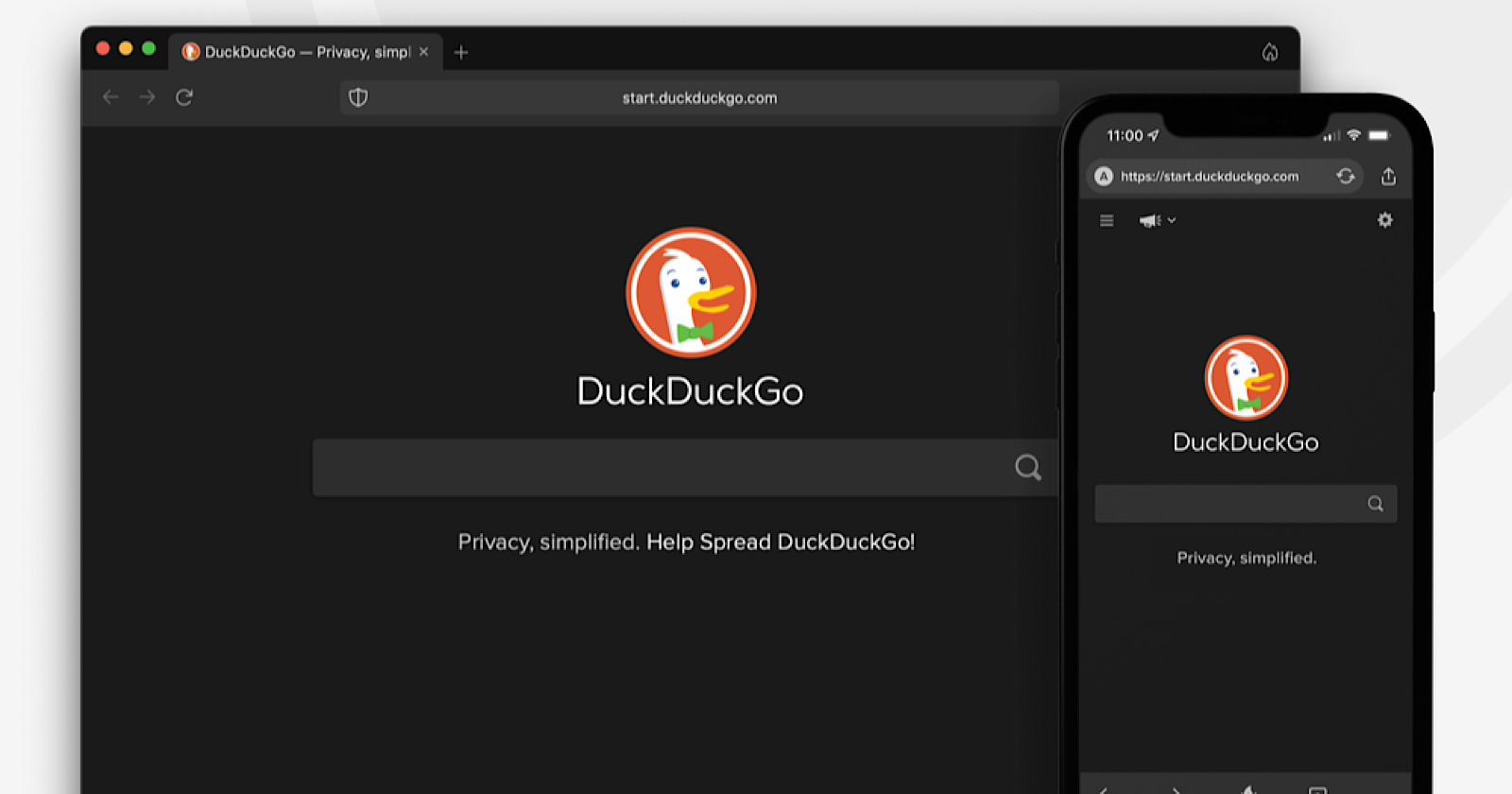

DuckDuckGo is an American software company that offers some products intended to help people protect their online privacy. The flagship product is a search engine that has been praised by privacy advocates. Subsequent products include extensions for all major web browsers and a custom DuckDuckGo web browser.
Pros
- Privacy DuckDuckGo doesn’t track your location or sell your information to third parties. It also uses encrypted searches and protection against tracking networks.
- Features DuckDuckGo has unique features like the “! bang” feature, which lets you search directly on other websites using a shortcut in the search bar. It also offers instant answers and pure search results.
- Open source Some of DuckDuckGo’s components are open source.
Cons
- Slower performance DuckDuckGo’s privacy-focused features can make it slower than other search engines.
- Limited index DuckDuckGo has a smaller index of websites than Google.
- Fewer advanced features DuckDuckGo doesn’t offer as many advanced features as Google.
- Less personalization DuckDuckGo doesn’t personalize search results based on your search history.
- Malware protection DuckDuckGo can’t guarantee complete protection against malware-ridden websites or content.
- IP addresses DuckDuckGo doesn’t hide IP addresses, but it also doesn’t associate your IP address with your searches. Your ISP may still be able to track your searches.
Selecting the appropriate browser hinges on individual needs and preferences. Whether speed, privacy, customization, or extra features are your priority, there is a browser available that can fulfil your criteria. Stay informed about updates and new features to ensure you’re getting the best browsing experience possible.
Tech
A Glimpse of Blockchain technology and Cryptocurrency through the Protests


Popularly, you’ve heard that the ongoing protests rummaging through Kenya are decentralized, organic, non-funded, and transparent. And that’s exactly what blockchain technology and cryptocurrency are all about too.
Decentralization means that it lacks a central location—no middleman or third party. Well, up to now, the government still thinks that an entity is definitely funding us. From the Russians, to the Illuminati, Ford-Kenya but maybe our true funding lies within the ruins that have been created by the corruption in this country. The uncovering of tweets by the late Jacob Juma from a decade ago, addressing still the same issues that we face in the present. The protests then began and have proven to not lie within a centralized society but a distributed network consisting of the citizens of Kenya.
Transparency comes in handy with blockchain technology through a distributed ledger that reveals to all custodians the transactions that have taken place. This has been vivid with the layout of the protests. We started with #OccupyCBD to #OccupyParliament to #OccupyUhuruPark and now to #OccupyJKIA. Clearly stating when and where the peaceful protests will take place.
The protests also have immutability in that they remain unchanged. They run with the same schedules religiously. Every Tuesday and Thursday, protesters have availed themselves in the streets, fighting for the cause, wanting a better country. In blockchain, the records equally remain unaltered. See when we talk about blockchain technology, we are literally talking about a buildup of blocks. Here, an individual block has to replicate the hash function of the previous block so as to avoid collision resistance.
Collision resistance has been seen in the protests, through the police fighting protesters. By launching teargas, to spraying water at high pressure from the water cannons, to the unnecessary arrests. The goons also paid to infiltrate the protests by looting and vandalizing businesses and causing unnecessary chaos. If it is hard to find two inputs that hash the same output then no good comes from what we’re trying to achieve in this country.
The deterministic nature of blockchain technology and cryptocurrency ensures that action is supposed to be executed in a certain way. And for us, it is going on X spaces to converse and to plan on the way forward. We do not just wake up and decide to occupy these places. We plan, we strategize. Equal to the Byzantine’s General Problem which states that system actors, in this case, we the people, must communicate with each other and agree on a viable truth.
Protesting and occupying also have various uses, so far, we’ve managed to #RejectTheFinanceBill2024, dissolving the Cabinet and forming another one, bringing to light how these gluttonous politicians have been spending the taxpayer’s money and of course grounding the president himself from leaving the country. The pilot and his crew must be having a lovely vacation I might say. And we continue to fight for many more causes, post and pay the interns and other civil servants, review some of these atrocious salaries, let these politicians account for taxpayers’ money and show evidence of development in their respective fields. Equally, blockchain seeks to improve food safety, simplify and deliver healthcare, introduce decentralized finance, and reduce fraud, and money laundering among many others.
We put our lives on the line in those streets. May all the lives lost continue resting in peace, it will not be in vain. At the end of the day as we raise the flag and are protected by the Constitution of Kenya, “All sovereign power belongs to the people of Kenya and shall be exercised in accordance with this Constitution.”
-



 A Chat With3 years ago
A Chat With3 years agoA MOMENT WITH SHARON WENDO, FOUNDER OF EPICA JEWELLERY
-



 Entertainment2 years ago
Entertainment2 years agoKenyan Movie Disconnect: The Wedding Planner Is Now Streaming On Netflix
-



 A Chat With2 years ago
A Chat With2 years agoFind out why ‘mutura is not a street food’ as Wanjira Puts it!
-



 A Chat With2 years ago
A Chat With2 years agoAre men allowed to cry?
-



 A Chat With2 years ago
A Chat With2 years agoThey Hooked Up With Their First Serious Boyfriends
-



 A Chat With2 years ago
A Chat With2 years agoA chat with one of the biggest female Djs right now, Dj Redbone
-



 A Chat With2 years ago
A Chat With2 years agoA chat with Atieno: A young radio personnel doing her thing behind the mics
-



 A Chat With2 years ago
A Chat With2 years agoKenyans make the best music in the world, Ayrosh

